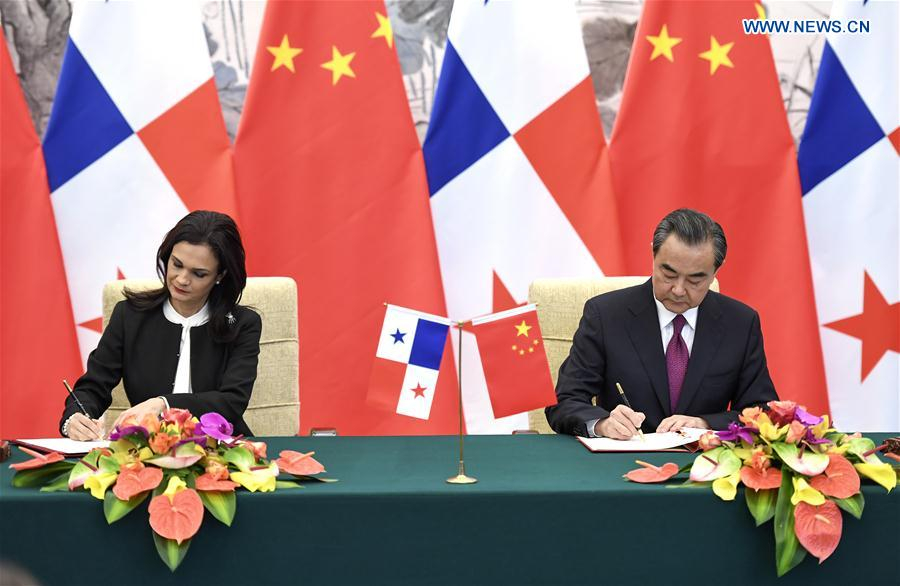Panama’s Win-win Cooperation with China Will Continue Under Cortizo

Laurentino Cortizo narrowly won Panama’s elections on Sunday to become the country’s next president-elect, prior to which he implied in an exclusive interview with Reuters that the U.S. needed to re-engage the region otherwise it risks being replaced by China. His exact words were that
“We need, and we have asked, that they look toward the region more – the region, not just Panama…They need to pay more attention. While they’re not paying attention, another one is making advances.”
The outlet also noted in a different piece that “Cortizo has said that he would review a high-speed train project with China,” which altogether carries with it the optics of the Panamanian president-elect supposedly pivoting towards the U.S. at China’s perceived expense.
That’s unlikely to happen, however, because Panama is poised to play an important regional role in the Belt and Road Initiative (BRI) if it goes forward with China’s plans to build a four billion U.S. dollars high-speed railroad from its capital to the Costa Rican border. This proposed project has the potential to strengthen relations between the members of the Central American Integration System (CISA) as a result.
The Panama Canal could then conceivably be the entry point for the terminal port for those countries’ own exports back to China, which would be facilitated by the proposed high-speed rail project and therefore increase Panama’s strategic importance to the rest of Central America.

The Neopanamax container vessel EVER LOADING transits the Expanded Canal on the outskirts of Panama City, Panama, June 26, 2017. /VCG Photo
It should be pointed out that China and Panama established diplomatic relations just two years ago and that relations between the two countries have greatly expanded in the intervening period, so the Central American state is already on excellent terms with China.
It would therefore be disadvantageous to its interests if it tries to politicize this proposed high-speed rail project in an effort to curry favor with the U.S., which is openly opposed to China’s many investments in the Western Hemisphere because they undermine the imperial-era Monroe Doctrine that claims all of Latin America as its exclusive sphere of influence. Panama has strong historic relations with the U.S. that explain its eagerness to court more attention from that country, but this should not be pursued in a zero-sum manner that might come at its other partners’ expense.
Instead, it would be best if Panama keeps its relations with China separate from those that it has with the U.S. and does not try to intermingle them in a way that might be predicated on turning one against the other. Friendly competition between countries always works out to everyone’s benefit, but unfriendly competition does not, so this should be avoided at all costs in order to not inadvertently ruin Panama’s relations with its other partners if Panama’s presumed balancing act backfires.
China’s investments in Panama and the Central American region as a whole have the explicit permission of their hosts because both parties recognize the objective win-win interests involved in expanding their cooperation with one another, which does not come at the expense of anyone’s relations with the U.S. unlike how some people misportray it.

Chinese State Councilor and Foreign Minister Wang Yi and Isabel Saint Malo de Alvarado, Panama’s vice president and foreign minister, sign the joint communique in Beijing, June 13, 2017. /Xinhua Photo
Panama’s new president will therefore probably continue his country’s cooperation with what might turn out to be the Central American Silk Road by retaining pragmatic relations with China. The proposed high-speed rail project is much too important to Panama’s grand strategic interests to be sacrificed to the U.S. so it wouldn’t make sense for president-elect Cortizo to do that.
Rather, his latest rhetoric about China should be understood in the context of the heated election that he ultimately won and as part of the recently discernible pattern of political candidates in other Silk Road countries taking a tougher stance towards China because they think it’ll earn them more votes. That seems to have been the case here as well, so there is no need to worry about Panama’s commitment to win-win cooperation with China for now.
*
Note to readers: please click the share buttons below. Forward this article to your email lists. Crosspost on your blog site, internet forums. etc.
This article was originally published on CGTN.
Andrew Korybko is an American Moscow-based political analyst specializing in the relationship between the US strategy in Afro-Eurasia, China’s One Belt One Road global vision of New Silk Road connectivity, and Hybrid Warfare. He is a frequent contributor to Global Research.
Featured image is from CGTN

